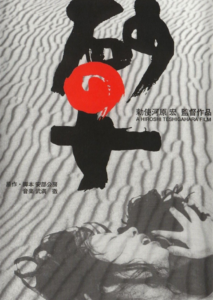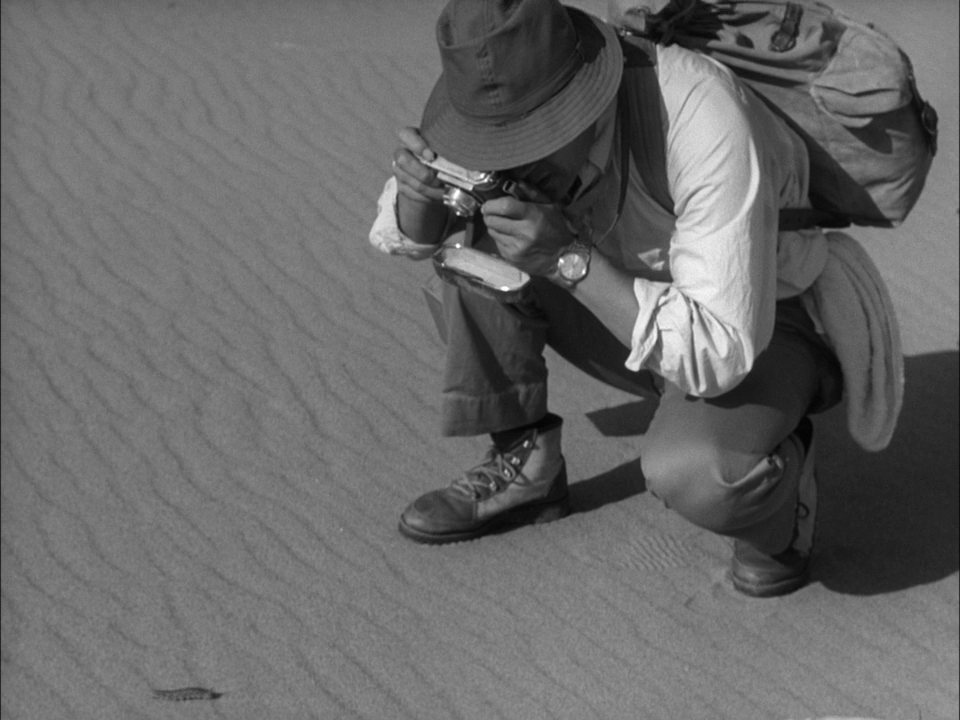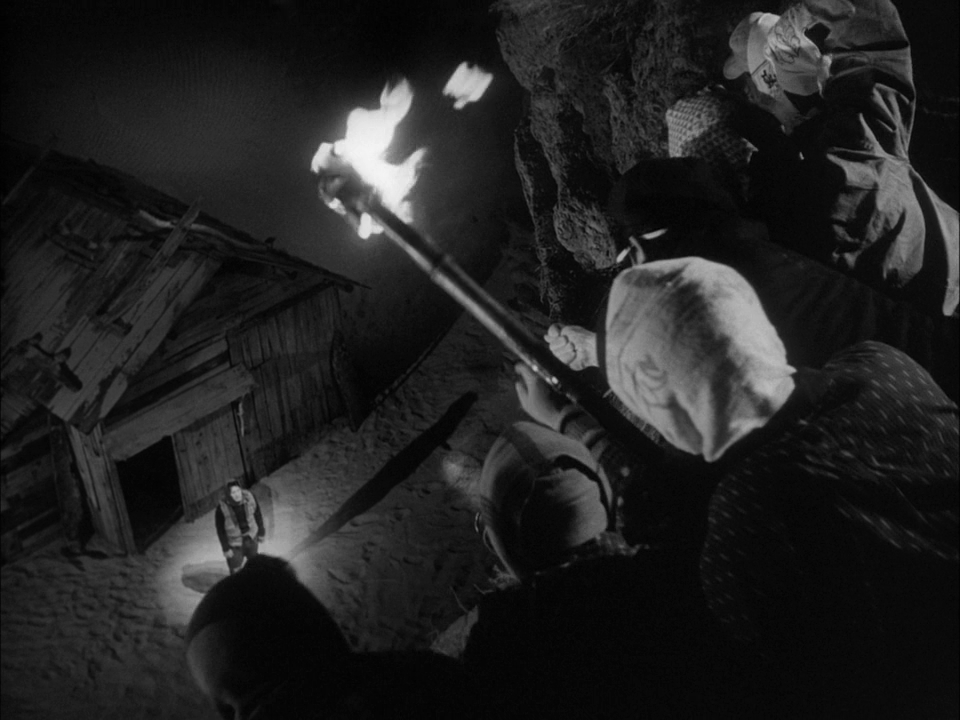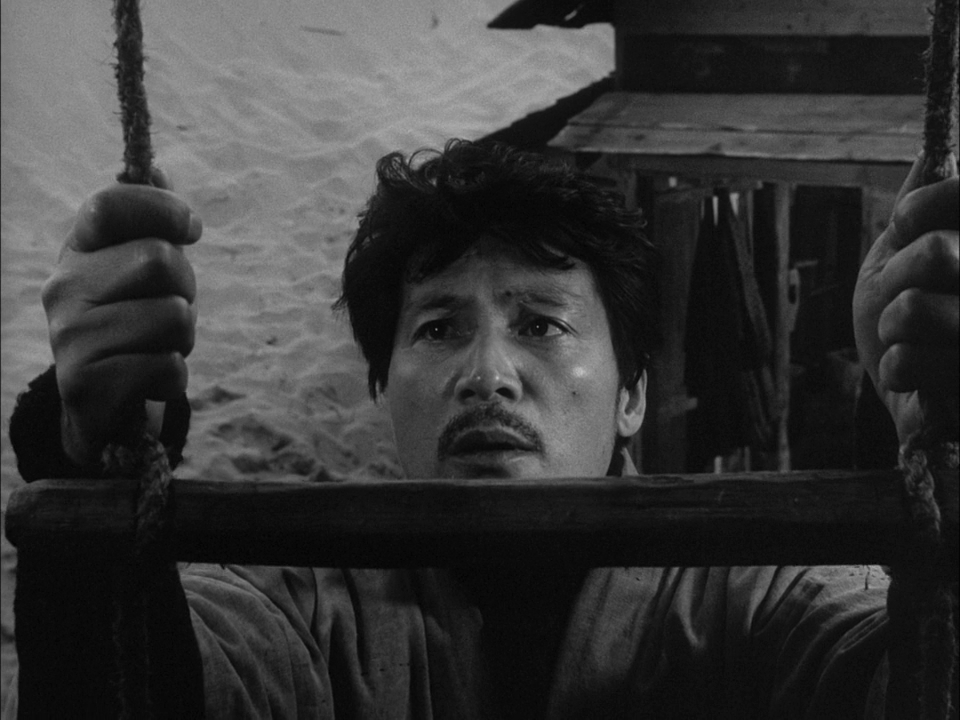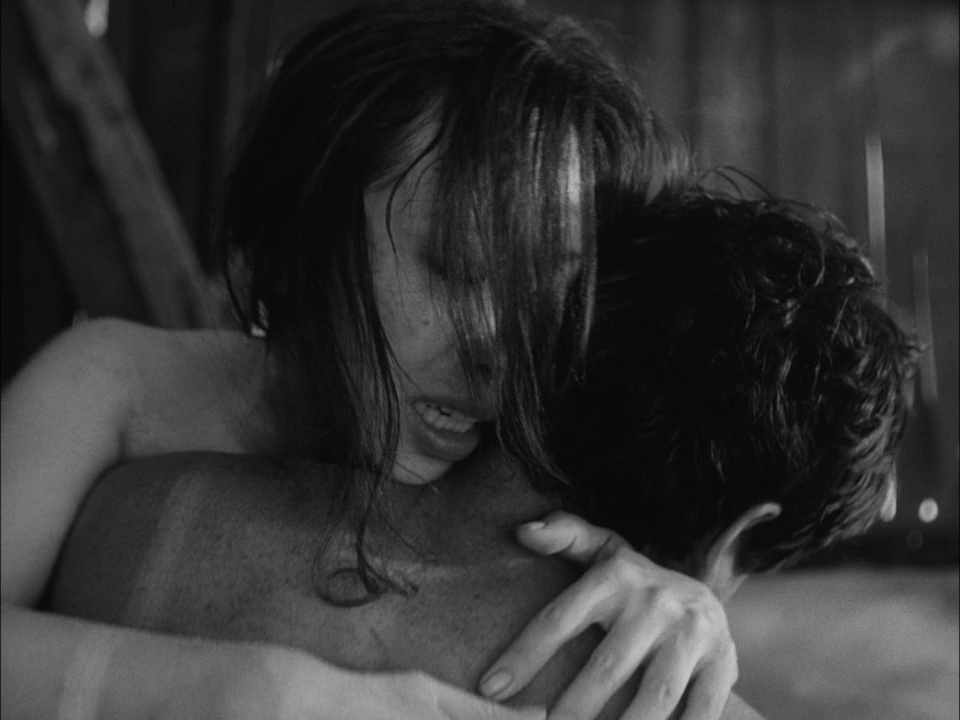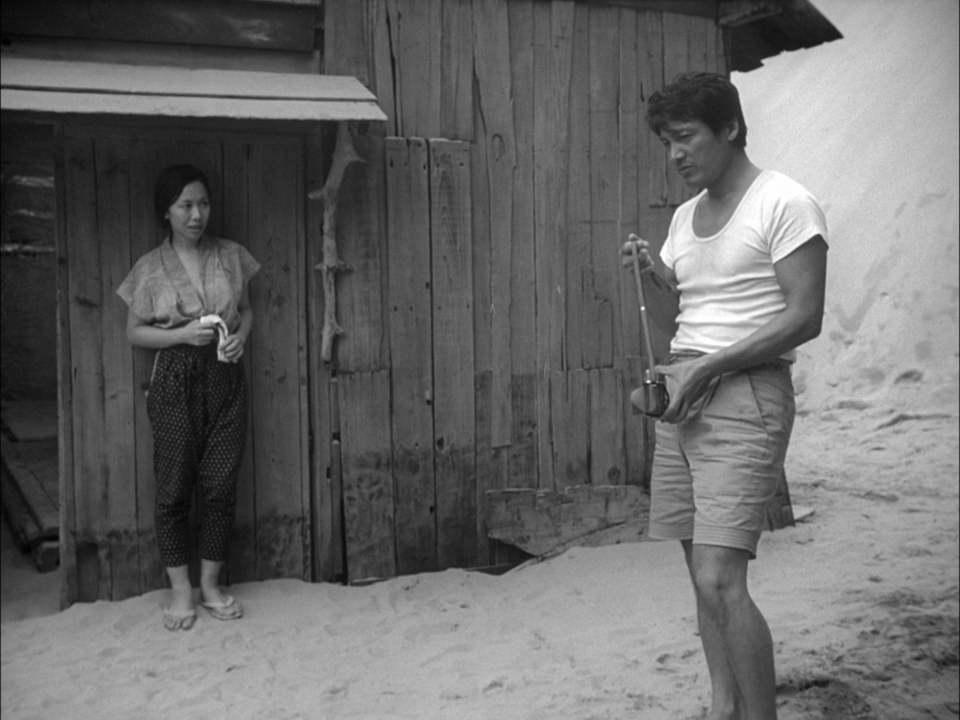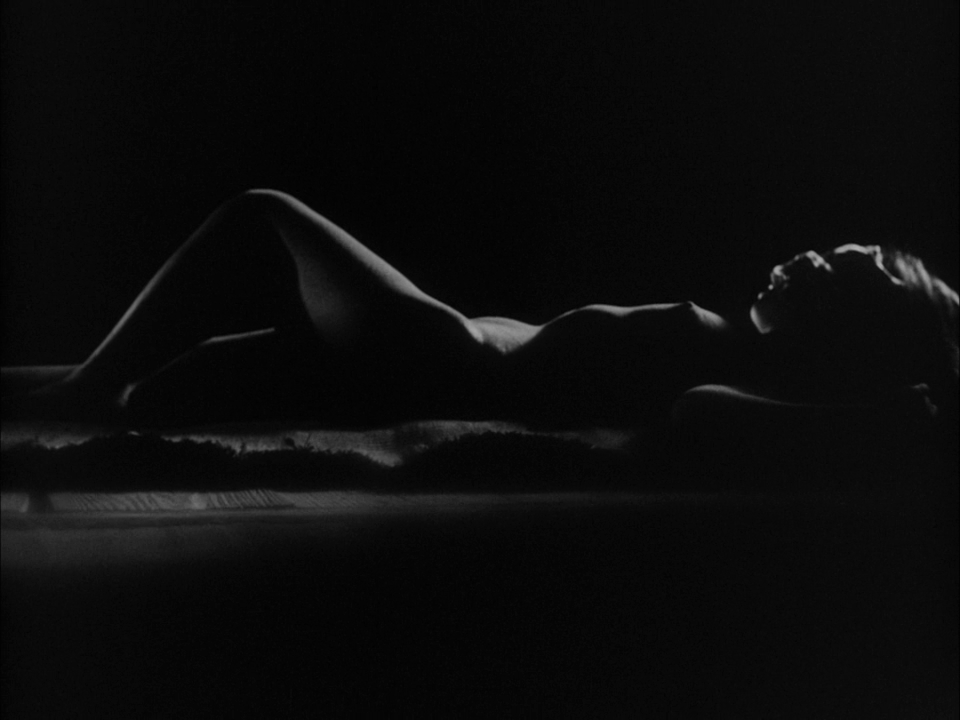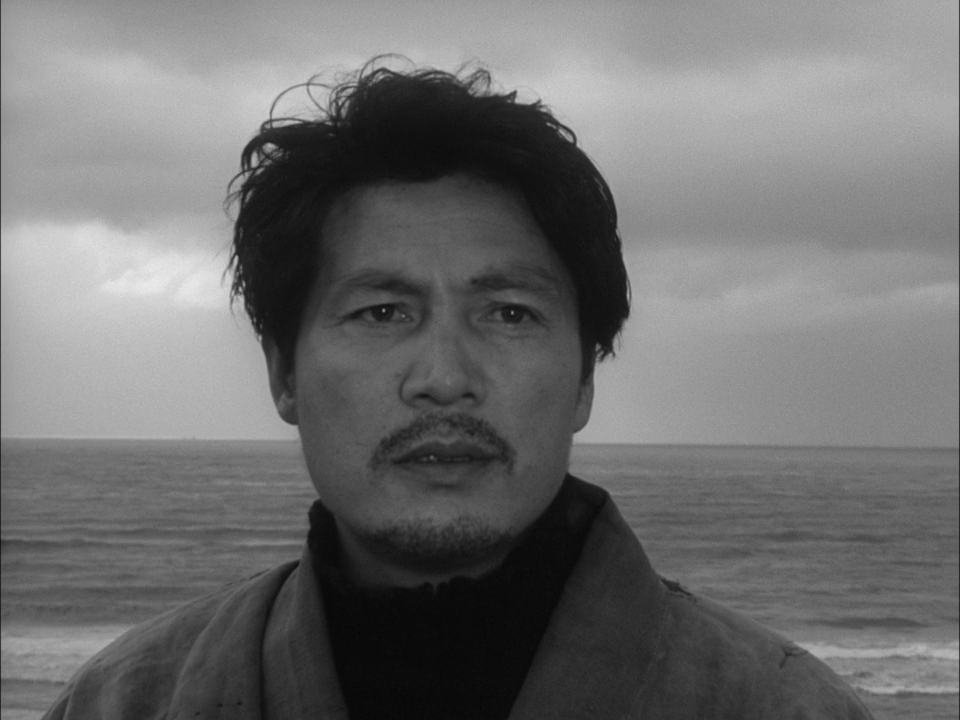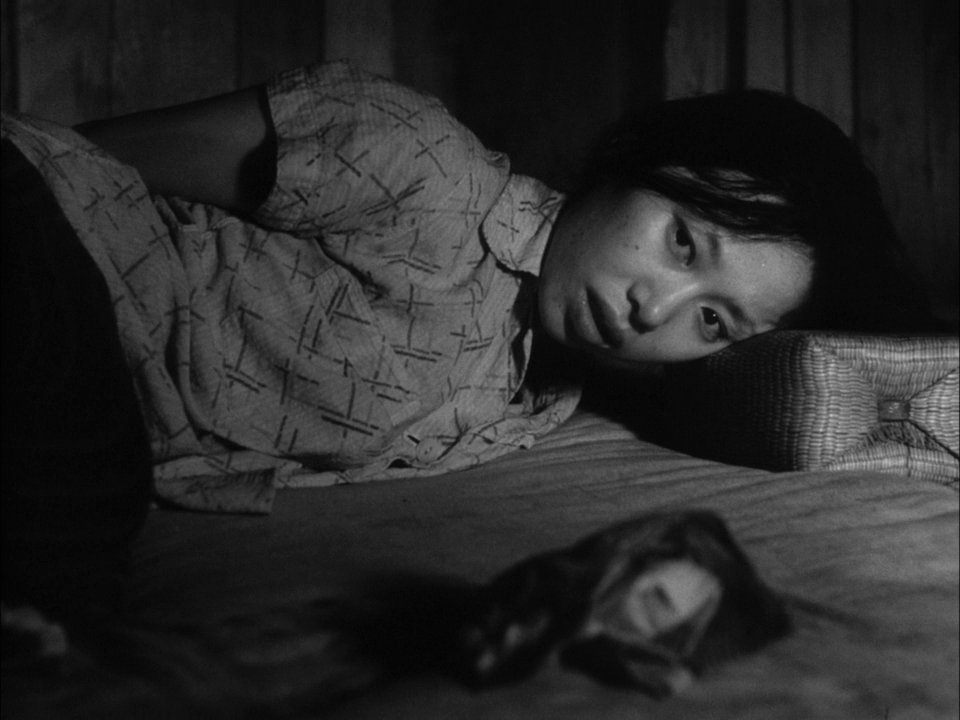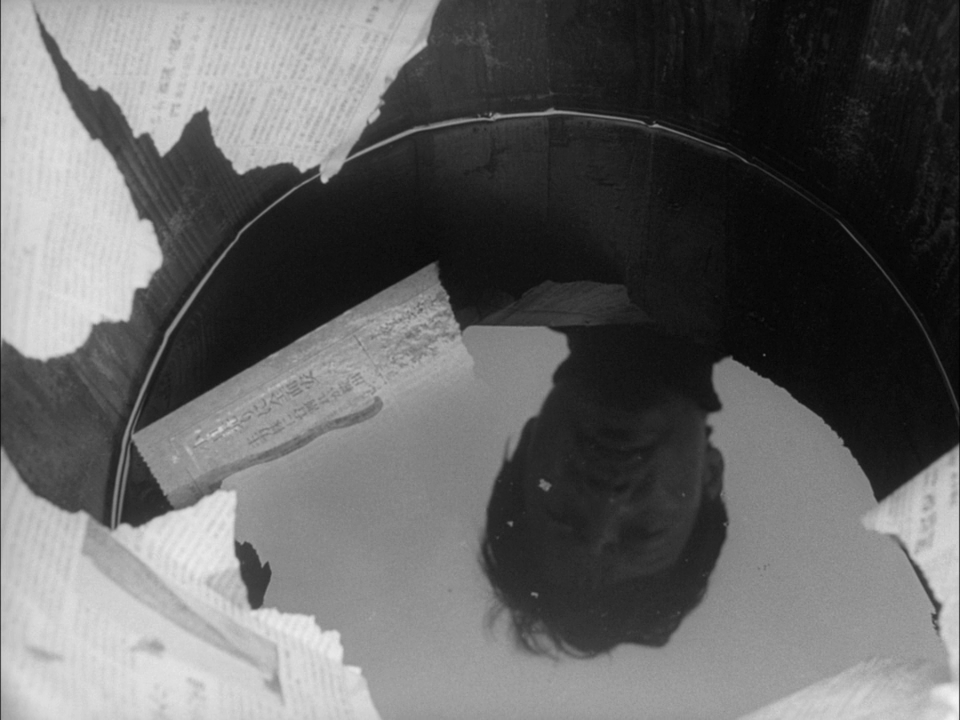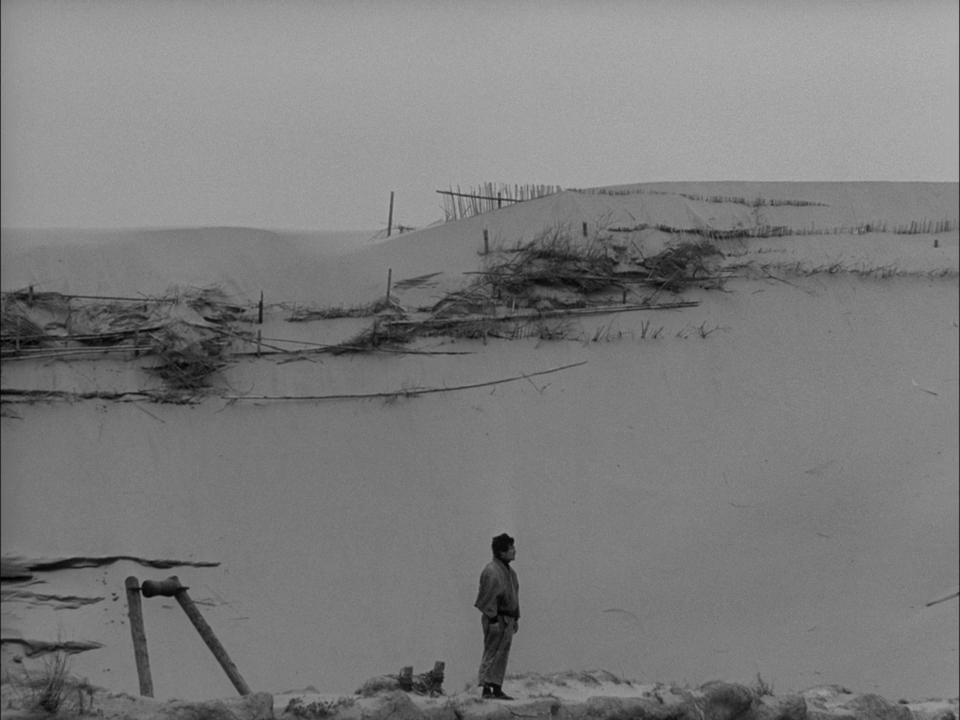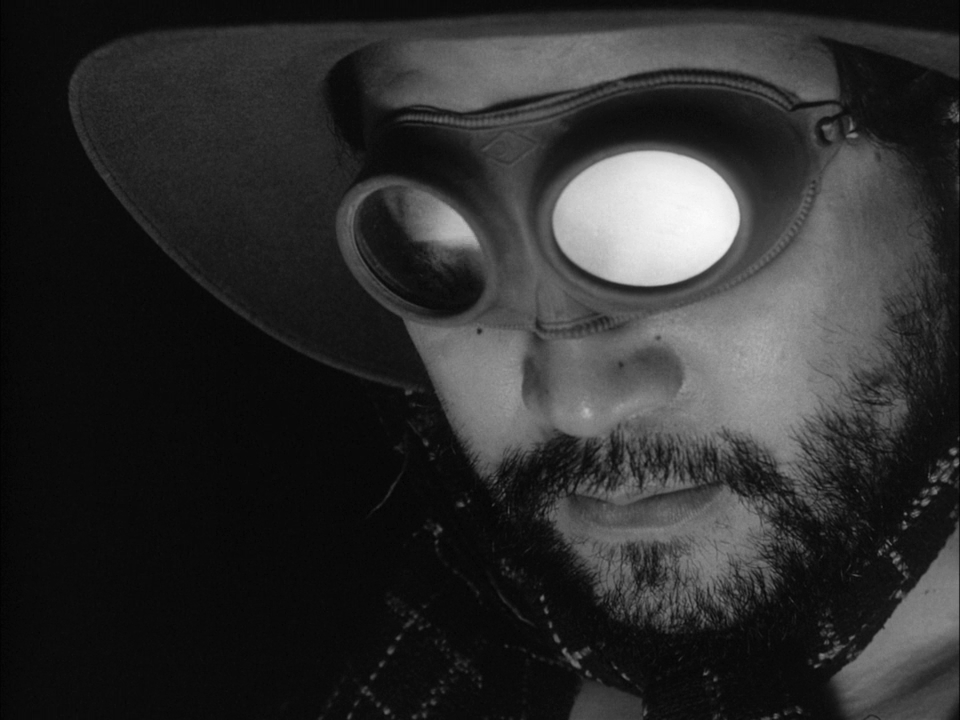Woman in the Dunes (1964)
“That sand just ruins everything, doesn’t it?”
|
Synopsis: |
|
Genres, Themes, Actors, and Directors:
Review: … is soon trapped under the gaze of those (the villagers) who watch and taunt him for their own amusement. Okada — likely best known to film fanatics from co-starring in Hiroshima Mon Amour (1959) — is entirely believable as a man convinced he can find a way out of his dilemma, only to eventually be beaten down by forces beyond his control. Kishida is equally effective as a young widow who seems slightly delusional (and is most certainly manipulative), but is simply responding to her own dire circumstances. The pair form an unexpectedly sweet bond of captivity, supporting one another through work, companionship, and sensual connection. In some ways, the less said about this movie the better, given that it unfolds in an eerily suspenseful way — and we’re not sure until the very end what will happen to the protagonists. It’s possible to enjoy this film either on its surface (albeit surreal) narrative level, or by probing into its thematic layers: Is the omnipresent gritty sand a stand-in for nuclear fallout dust? Are we all trapped in a menial existence filled with hard labor under the scrutiny of others? Regardless of how you choose to approach the story, the visceral impact of living with these individuals in their gritty, nightmarish existence is unlike what I’ve experienced with any other movie. Note: This film made Teshigahara the first Japanese director to be nominated for an Oscar for directing. Notable Performances, Qualities, and Moments:
Must See? Categories
(Listed in 1001 Movies You Must See Before You Die) Links: |
